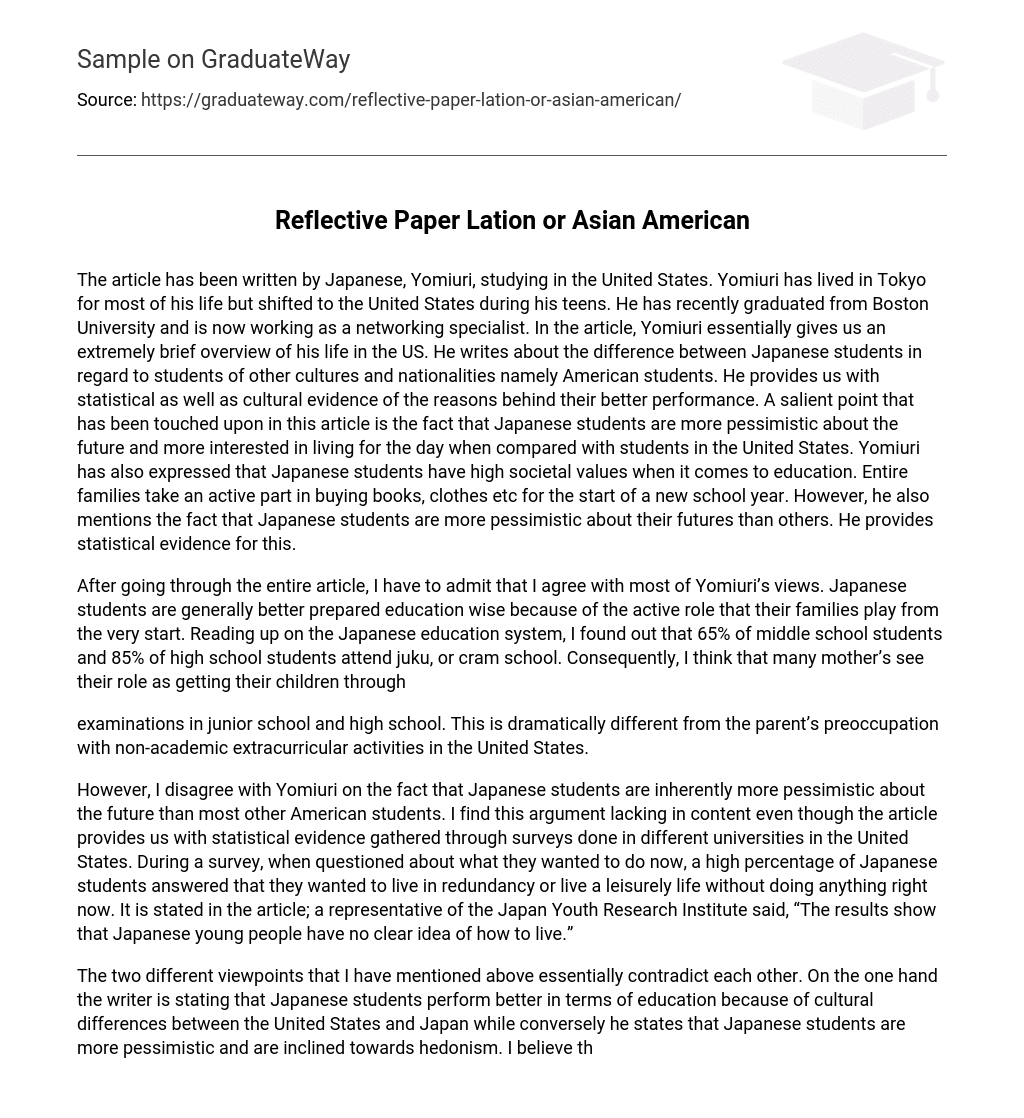The article has been written by Japanese, Yomiuri, studying in the United States. Yomiuri has lived in Tokyo for most of his life but shifted to the United States during his teens. He has recently graduated from Boston University and is now working as a networking specialist. In the article, Yomiuri essentially gives us an extremely brief overview of his life in the US. He writes about the difference between Japanese students in regard to students of other cultures and nationalities namely American students. He provides us with statistical as well as cultural evidence of the reasons behind their better performance. A salient point that has been touched upon in this article is the fact that Japanese students are more pessimistic about the future and more interested in living for the day when compared with students in the United States. Yomiuri has also expressed that Japanese students have high societal values when it comes to education. Entire families take an active part in buying books, clothes etc for the start of a new school year. However, he also mentions the fact that Japanese students are more pessimistic about their futures than others. He provides statistical evidence for this.
After going through the entire article, I have to admit that I agree with most of Yomiuri’s views. Japanese students are generally better prepared education wise because of the active role that their families play from the very start. Reading up on the Japanese education system, I found out that 65% of middle school students and 85% of high school students attend juku, or cram school. Consequently, I think that many mother’s see their role as getting their children through
examinations in junior school and high school. This is dramatically different from the parent’s preoccupation with non-academic extracurricular activities in the United States.
However, I disagree with Yomiuri on the fact that Japanese students are inherently more pessimistic about the future than most other American students. I find this argument lacking in content even though the article provides us with statistical evidence gathered through surveys done in different universities in the United States. During a survey, when questioned about what they wanted to do now, a high percentage of Japanese students answered that they wanted to live in redundancy or live a leisurely life without doing anything right now. It is stated in the article; a representative of the Japan Youth Research Institute said, “The results show that Japanese young people have no clear idea of how to live.”
The two different viewpoints that I have mentioned above essentially contradict each other. On the one hand the writer is stating that Japanese students perform better in terms of education because of cultural differences between the United States and Japan while conversely he states that Japanese students are more pessimistic and are inclined towards hedonism. I believe the reason behind these contradictory views lies in the fact that students born and bred in Japan tend to be more inclined towards education because they have a strong link with their real culture. However, while living in the US they have a strong inclination towards hedonism because of the highly influencing affect of the various different cultures and lifestyles in the United States.
References:
Sasaki, Y. (2007, March 15). The Cultural Gap Syndrome. The News p. A3.





